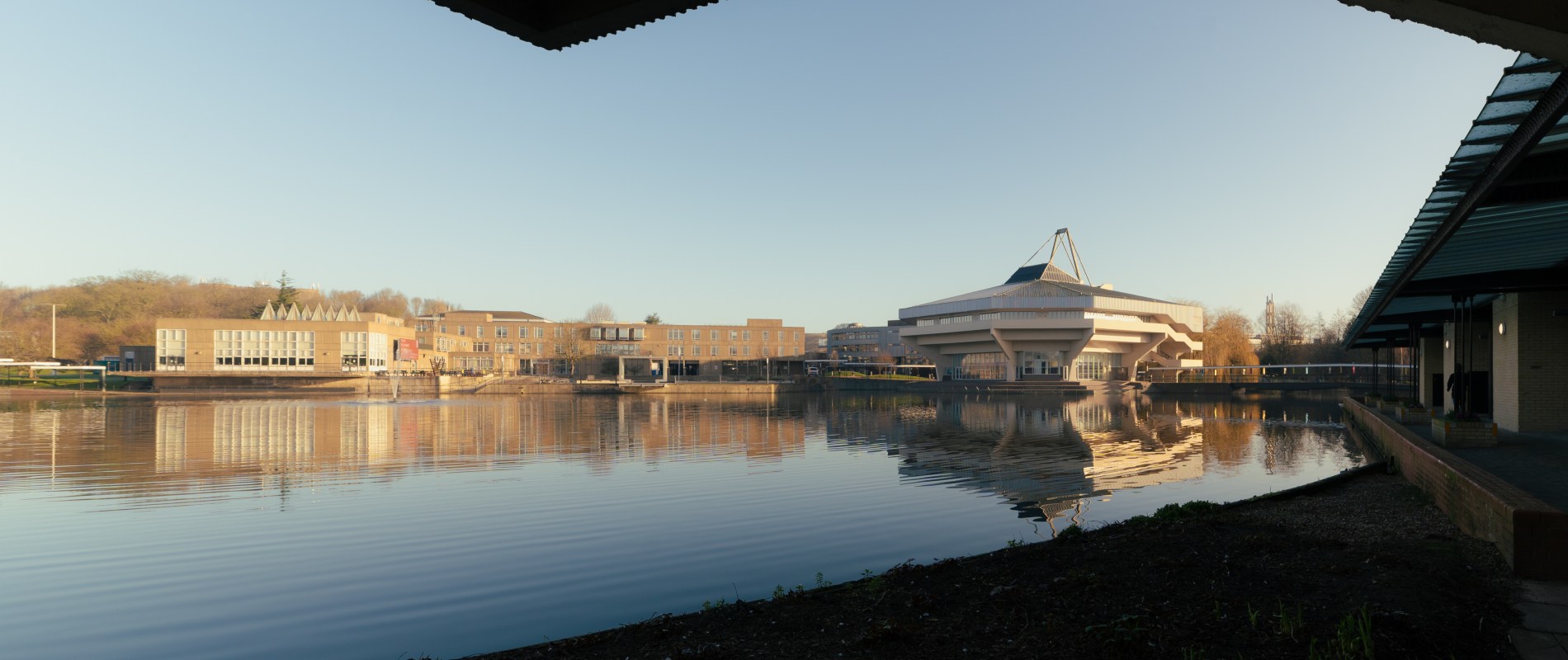View semester dates
2 years part-time,
3 years part-time

Consider the environmental value of built heritage and address issues of sustainability in conservation
Year of entry: 2026 (September)
Develop your knowledge of the heritage sector and engage with creative solutions in sustainable conservation through policy and practice.
You'll combine a critical study of the heritage sector with case studies of built environments, including visits and workshops. Explore best practice approaches in sustainable conservation. Consider the role of policy making, and how we might develop solutions to current issues in the preservation of built heritage.
Enhance your learning through a curated placement with one of our heritage and sustainability partners, including York Conservation Trust and York Civic Trust. Gain relevant, hands-on experience that will inform your assessment and equip you with a range of skills for your future career.
Through a combination of academic studies, experience-based learning and dissertation research, this course provides you with a thorough understanding of the built environment and sustainability concerns facing the heritage sector:
You will choose one option module from examples including:
You'll also have the opportunity to choose options from our full module catalogue. Examples may include:
Some option modules combinations may not be possible. The option available to you will be confirmed after you begin your course.
Our modules may change to reflect the latest academic thinking and expertise of our staff, and in line with Department/School academic planning.
You'll complete an 8,000-word dissertation on your research.
You will receive support, advice and guidance from your dissertation supervisor throughout your project. The range of expertise of our staff means we can provide you with guidance on a wide range of topics. You will have one-to-one meetings with supervisors across the Summer Semester.
Every course at York is built on a distinctive set of learning outcomes. These will give you a clear understanding of what you will be able to accomplish at the end of the course and help you explain what you can offer employers. Our academics identify the knowledge, skills, and experiences you'll need upon graduation and then design the course to get you there.
| Study mode | UK (home) | International and EU |
|---|---|---|
| Full-time (1 year) | £12,500 | £27,250 |
| Part-time (2 years) This is the year 1 fee. Fees for future years are subject to confirmation. |
£6,250 | £13,625 |
| Part-time (3 years) This is the year 1 fee. Fees for future years are subject to confirmation. |
£4,167 | £9,083 |
Students on a Student Visa are not currently permitted to study part-time at York.
For courses which are longer than one year, the tuition fees quoted are for the first year of study.
UK (home) or international fees? The level of fee that you will be asked to pay depends on whether you're classed as a UK (home) or international student. Check your fee status.
Find out more information about tuition fees and how to pay them.
Discover your funding options to help with tuition fees and living costs.
We'll confirm more funding opportunities for students joining us in 2026/27 throughout the year.
If you've successfully completed an undergraduate degree at York you could be eligible for a 10% Masters fee discount.
We are pleased to work with Chevening Scholars to offer funding for our Masters programmes. Chevening Scholarships provide one year of fully-funded postgraduate study in the UK for international (including EU) students. The scholarships are open to early and mid-career professionals who have the potential to become future leaders.
You’ll work with world‐leading academics who’ll challenge you to think independently and excel in all that you do. Our approach to teaching will provide you with the knowledge, opportunities, and support you need to grow and succeed in a global workplace.
You'll be taught through a combination of lectures, workshops, seminars and site visits.
There is plenty of one-on-one guidance with staff and leading external experts in the conservation and heritage sector.
You will be based on Campus West and in King's Manor.
Our beautiful green campus offers a student-friendly setting in which to live and study, within easy reach of the action in the city centre. It's easy to get around campus - everything is within walking or pedalling distance, or you can always use the fast and frequent bus service.
You will be assessed by a variety of methods, including:
This course is for students who want to work in the conservation, heritage and sustainability sectors. Potential employers will value the experience you'll gain on your placement. Our graduates have gone on to work in a variety of industries and professions. The course also prepares you for doctoral research.
Students involved in the Heritage Planning Studio have gone on to great success. Most have secured employment as conservation officers in local government and in various national, regional and local heritage bodies.
| Qualification | Typical offer |
|---|---|
| Undergraduate degree | 2:2 or equivalent in a Archaeology or a related subject such as Architecture, Planning, Surveying, History, Geography, Anthropology, Politics or any relevant subject. |
| Other qualifications and experience | Mature students or those with less conventional qualifications but with relevant professional experience and enthusiasm for this field will be considered. To find out if your professional experience or qualifications are appropriate, please contact the Course Director. |
| Other international qualifications | Equivalent qualifications from your country |
You will need to submit examples of written work with your application. Please see our guidance on submitting written work.
If English isn't your first language you may need to provide evidence of your English language ability. We accept the following qualifications:
| Qualification | Minimum requirement |
|---|---|
| IELTS (Academic and Indicator) | 6.5, minimum 6.0 in each component |
| Cambridge CEFR | B2 First: 176, with 169 in each component |
| Oxford ELLT | 7, minimum of 6 in each component |
| Oxford Test of English Advanced | 136, minimum 126 in each component |
| Duolingo | 120, minimum 105 in all other components |
| LanguageCert SELT | B2 with 33/50 in each component |
| LanguageCert Academic | 70 with a minimum of 65 in each component |
| Kaplan Test of English Language | 478-509, with 444-477 in all other components |
| Skills for English | B2: Merit overall, with Pass with Merit in each component |
| PTE Academic | 61, minimum 55 in each component |
| TOEFL | 87, minimum of 21 in each component |
| Trinity ISE III | Merit in all requirements |
For more information see our postgraduate English language requirements.
You may be eligible for one of our pre-sessional English language courses. These courses will provide you with the level of English needed to meet the conditions of your offer.
The length of course you need to take depends on your current English language test scores and how much you need to improve to reach our English language requirements.
After you've accepted your offer to study at York, we'll confirm which pre-sessional course you should apply to via You@York.
Get in touch if you have any questions




